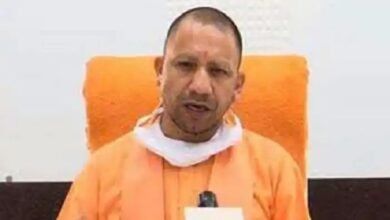[ad_1]
Taking issue to statements made in reports by the Supreme Court-appointed Gita Mittal committee, two Kuki-Zomi community organisations have stated that they never refused to accept the bodies of Kuki-Zomi people lying in morgues in Imphal, and that the committee has not made any contact with them so far.
In its 13th interim report to the Supreme Court, the three-member committee – appointed by the Supreme Court to examine the humanitarian aspects of the Manipur conflict – had reported that 88 identified bodies of the 175 deaths reported till October 7 were yet to be claimed by their families. In its report, it had stated that the committee had been informed by state authorities that though most next of kin were willing to accept the bodies to perform the final rites, “there is tremendous pressure upon them from Civil Society Organisations (CSOs) active in the state” not to do so. It stated that “it is apprehended” that they are opposing this “on account of vested interests, and even in order to derive mileage and to compel the authorities to meet unwarranted demands from the situation”.
In a memorandum submitted to Retired Justice Gita Mittal, who is the chairperson of the committee, two major Kuki-Zomi community organisation – the Indigenous Tribal Leaders’ Forum (ITLF) and the Joint Philanthropic Organisation (JPO) – stated that the committee had no contact and discussion with them, suggesting that this could be attributed to the committee being guided by the State of Manipur and that “the State probably did not make arrangements for the Committee to meet the leading tribal organisations”.
They stated that both the 13th and 14th reports submitted by the committee relied on “the State and the dominant community against the tribals”, and that they “never refused” to accept the bodies. They stated that the return of bodies has been a central issue in all memorandums and letters submitted to authorities by the organisations.
The report stated that CSOs are insisting on burying the bodies at “unsuitable spots”. In their memorandum, the two CSOs stated that while the initial spot they had decided on for the burial was controversial, they did not insist on it and agreed after discussions with the Union Ministry of Home Affairs to bury them at “non-controversial sites”. They stated that while nine such suitable locations were supposed to be shared with them, that has not yet been done.
“It appears that the Committee is not being fully informed about the discussions between the MHA and the tribal organisations. While the MHA and the tribal organisations arrived at a satisfactory solution, the Committee appears not to have been informed of this positive development and has proceeded on the State of Manipur input that the tribals are obstructing the rehabilitation process,” they stated.
They also objected to the submission made in the committee’s 14th interim report that they had pressured families of the dead not to accept the ex-gratia offered by the government because of which 38 families had expressed unwillingness to receive the amount.
They stated that they “have never refused compensation” but went on to state that “the view among the tribals is that it would be an insult to the dead to accept money at this stage from the very State that engineered the ethnic cleansing” They stated that a decision regarding compensation would be taken after the burial of the dead.
[ad_2]





